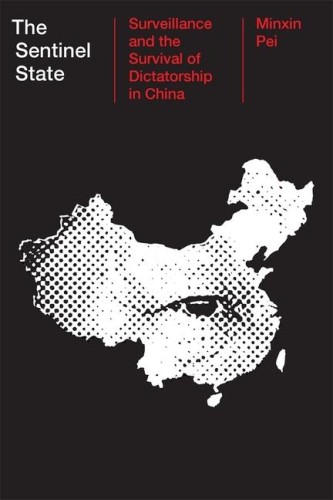The Sentinel State
Buch

- Titel: The Sentinel State : Surveillance and the Survival of Dictatorship in China / Minxin Pei
- Person(en): Pei, Minxin [Verfasser*in]
- Organisation(en): Harvard University Press [Verlag]
- Ausgabe: 1st printing
- Sprache: Englisch
- Originalsprache: Englisch
- Umfang: IX, 321 Seiten : Tabellen ; 21 cm
- Erschienen: Cambridge, Mass. : Harvard University Press, 2024
- ISBN/Preis: 978-0-674-25783-2 Festeinband : EUR 38.00
- Schlagwörter: China ; Überwachung ; Diktatur
- Signatur: LERNEN und ARBEITEN > Geografie und Geschichte
- Dim 0 CHIN PEI•/21 Englisch Dim 0
Inhalt: For decades China watchers argued that economic liberalization and increasing prosperity would bring democracy to the world's most populous country. Instead, the Communist Party's grip on power has only strengthened. Why? The answer, Minxin Pei argues, lies in the effectiveness of the Chinese surveillance state. And the source of that effectiveness is not just advanced technology like facial recognition AI and mobile phone tracking. These are important, but what matters more is China's vast, labor-intensive infrastructure of domestic spying. Central government data on Chinese surveillance is confidential, so Pei turned to local reports, police gazettes, leaked documents, and interviews with exiled dissidents to provide a detailed look at the evolution, organization, and tactics of the surveillance state. Following the 1989 Tiananmen uprising, the Chinese Communist Party invested immense resources in a coercive apparatus operated by a relatively small number of secret police officers capable of mobilizing millions of citizen informants to spy on those suspected of disloyalty. The CCP's Leninist bureaucratic structure — whereby officials and party activists penetrate every sector of society and the economy, from universities and village committees to delivery companies, telecommunication firms, and Tibetan monasteries — ensures that Beijing's eyes and ears are truly everywhere. While today's system is far more robust than that of years past, it is modeled after mass surveillance implemented under Mao Zedong and Chinese emperors centuries ago. Rigorously empirical and rich in historical insight, "The Sentinel State" is a singular contribution to our knowledge about coercion in the Chinese state and, more generally, the survival strategies of authoritarian regimes.
Soziale Netzwerke